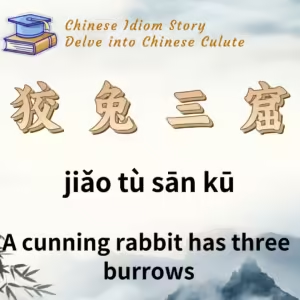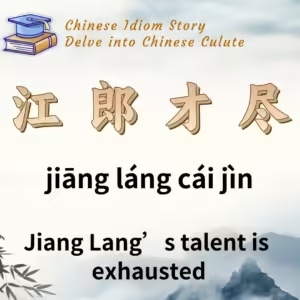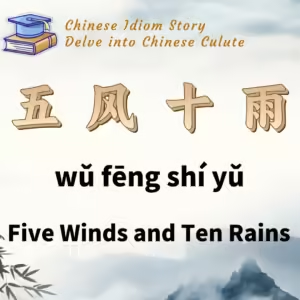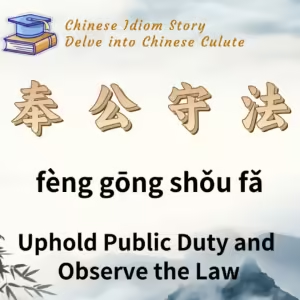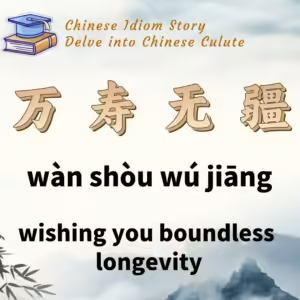
Chinese Idiom: 万寿无疆 (Wan Shou Wu Jiang)
English Translation: Wishing you boundless longevity
pīn yīn: wàn shòu wú jiāng
Idiom Meaning: This phrase is used to wish someone a long and healthy life, with the “无疆” part emphasizing the wish for life to continue without limits.
Historical Source: The Book of Songs: Pin Feng: July (《诗经·豳风·七月》).
Idiom Story:
The idiom “万寿无疆” originates from an ancient Chinese poem titled July in the Book of Songs (《诗经》). This poem vividly describes the harsh conditions faced by exploited peasants and contrasts their plight with the luxurious lives of their oppressors. The poem consists of eight sections, detailing various aspects of the peasants’ toil and the disparity between their lives and those of their exploiters.
In the eighth section of the poem, the scene is set during the winter and early spring months. It describes the peasants’ activities, including cutting ice in December, storing it in ice houses, preparing sacrifices, and celebrating festivals. This final section features a ceremonial scene where the exploiters, enjoying their luxurious lifestyle, raise their wine cups in a grand hall and toast with the phrase “万寿无疆” (wishing the recipients boundless longevity).
The use of this phrase in the context of the poem highlights the stark contrast between the exploiters’ opulence and the peasants’ hardship. The phrase has since evolved into a standard expression used to convey wishes for long life and good health. It is often employed in contexts where one expresses a sincere hope for another’s continued well-being and enduring vitality.


